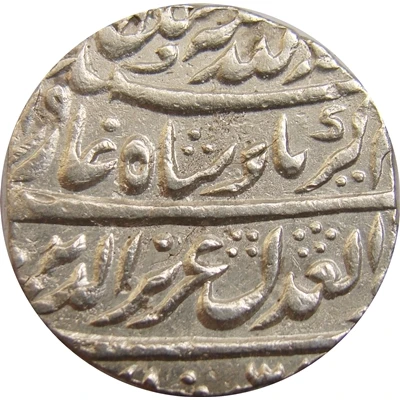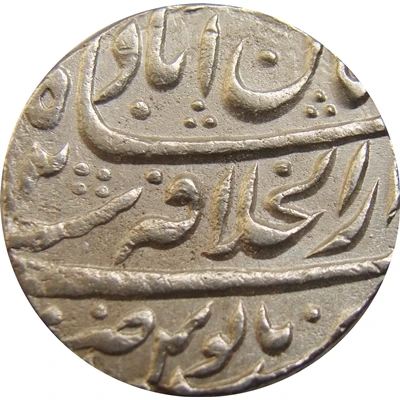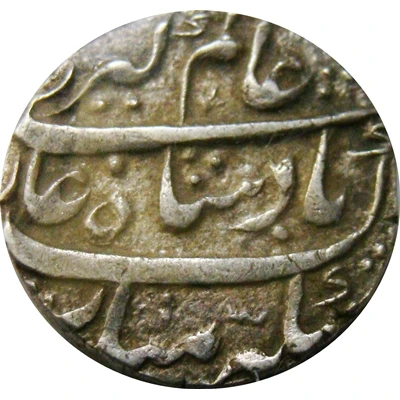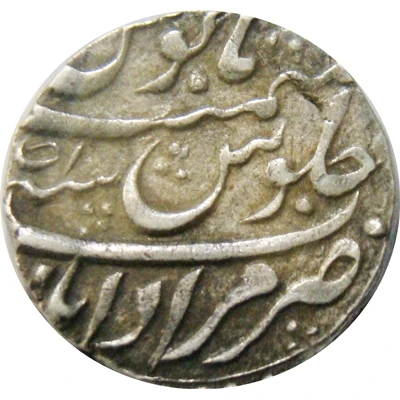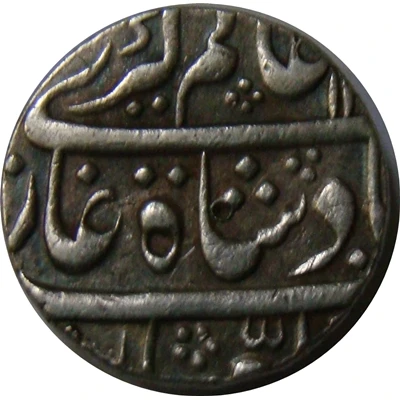
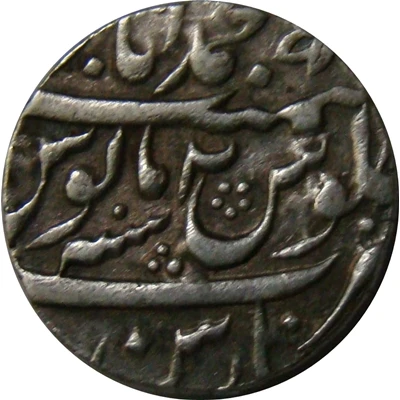

© Parimal (CC BY-NC-SA)
1 Rupee - Alamgir II Muhammadabad Banares
| Silver | 11.32 g | 20.51 mm |
| Issuer | Mughal Empire (India) |
|---|---|
| Emperor | Alamgir II (1754-1759) |
| Type | Standard circulation coin |
| Years | 1168-1172 (1755-1759) |
| Calendar | Islamic (Hijri) |
| Value | 1 Rupee |
| Currency | Rupee (1540-1842) |
| Composition | Silver |
| Weight | 11.32 g |
| Diameter | 20.51 mm |
| Shape | Round |
| Demonetized | Yes |
| Updated | 2024-10-05 |
| Numista | N#69626 |
|---|---|
| Rarity index | 93% |
Reverse
Inscription
Comment
The regnal years 5 and 6 of this rupee type show a trident between "badshah" and "ghazi".Though KM attributes both the variants of this rupee type to Mughal Empire, A more accurate attribution is that the coin is of Indian Princely States - Awadh, issued by Nawab Shuja-ud-Daula in the name of Alamgir II
Interesting fact
The 1 Rupee coin from the Mughal Empire, issued during the reign of Alamgir II (Muhammadabad Banares) from 1168-1172 (1755-1759), was made of silver and weighed 11.32 grams. Despite being a standard circulation coin, it's interesting to note that the coin's design and weight were influenced by the Islamic tradition of coinage, which emphasized the use of precious metals like silver and gold. The coin's design featured intricate calligraphy and geometric patterns, which were hallmarks of Islamic art and architecture. This blend of Islamic and Indian influences made the coin a unique representation of the Mughal Empire's cultural and economic richness.
